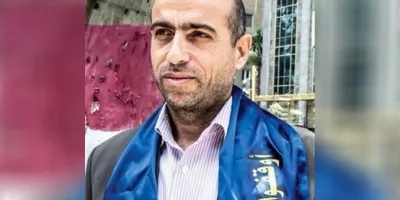The Committee for Justice (CFJ) organization said that it has received information from several sources that Egyptian authorities in recent days have executed 15 political detainees: 2 of them in the case known in the media as the “Events of the Library of Alexandria”, 10 others in the case known in the media as “Soldiers of Egypt 1“, and 3 in the Kerdasa case. We have also received unconfirmed news of the execution of 8 others sentenced to death in on-political cases last week.
The late Egyptian Attorney General Hisham Barakat ordered in July 2014 the referral of the defendants in the “Soldiers of Egypt 1” case to criminal prosecution, after which they were accused of several charges that they denied during the investigations. The charges were: committing acts of violence and killing six policemen in the period from July 2013 to July 2015, and joining the “Soldiers of Egypt” group.
The Court of Cassation, the country’s highest appeals court, upheld in May 2019 the death sentence of 13 of the defendants in the case.
Commenting on the executions, CFJ’s Executive Director Ahmed Mefreh said:
“What happened during the past three days is another evidence of the expansion of the implementation of death sentences by Egyptian authorities, in a clear violation of a basic human right, namely the right to life. What we know so far confirms the lack of fair standards during the trials that took place against those defendants who were executed.”
According to CFJ sources, the names of the executed political detainees in the case known in the media as “Soldiers of Egypt 1” are: Yasser Mohammad Ahmed Khudair,Abdullah Al-Sayed,Gamal Zaki Abdel-Rahim,Islam Shaaban Shehata,Mohammad Ahmed Tawfiq,Saad Abdel Raouf Saad,Mohammad Saber Ramadan Nasr,Mahmoud Saber Ramadan Nasr,Samir Ibrahim Saad Mustafa,Mohammad Adel Abdul Hamid.
The bodies of the above detainees were in the Zeinhom morgue in Cairo as of Tuesday morning, as families are still attempting to collect them.
Meanwhile, other sources reported that two opponents of Abdel Fattah el-Sisi’s rule: Yasser Al-Abasiri and Yasser Shokr, were executed.
The two were convicted of violent incidents in the case known in the media as the “Events of the Library of Alexandria”.
The facts on which the case was based date back to August 2013, when protests erupted against the security forces in front of the Library of Alexandria, following the deadly Rabaa sit-in dispersal.
The Alexandria protests resulted in the killing of 15 people, including two policemen. The Egyptian Public Prosecution accused members of the Muslim Brotherhood group of being involved in these protests. The defendants’ lawyers denied all the accusations. They also refuted the indictment evidence, and proved the facts of violations against the detainees, including torture and enforced disappearance.
The violations against the detainees were not limited to only their arrest, torture, and enforced disappearance, but also extended during their imprisonment, as described in an audio recording which was leaked from the prison of the former detainee who was executed, Yasser Al-Abasiri, a copy of which was sent to CFJ. In the recording, Abasiri narrated what he described as “the diaries of humiliation and abuse”, which he was subjected to in his prison since he was sentenced to death.
Al-Abasiri talked about being locked in a cell measuring 2*2 meters only, with two people inside, each person had about four blankets. He said he used to sleep in an area of about 65 centimeters, and that they stayed inside the cell for 23 hours a day, and were allowed to exercise for one hour only, in a place called “the tube”, a very narrow and closed place, about 24 meters long, and only a meter and 60 centimeters wide.
Regarding family visits, Abasiri said in his leaked recording that the visit was once a month or twice at most, and that they met the families handcuffed, which limited their communication. He also revealed that women who came to the visits were subjected to verbal and physical harassment by police officers during search. Prison authorities, he said, banned the entry of food items from families,claiming that the prison’s food was enough, but that prison food was often “inedible”.
Concerning the Kerdasa case, those executed are: Ahmed Muhammad Muhammad al-Shahid, Saeed Yusef Abd al-Salam Salih Ammar, Shahat Mustafa Muhammad Ali al-Ghazlani Ammar. The three were convicted of storming the Kerdasa police station, killing those in it, and mutilating their corpses. They were also charged with the killing of two families who happened to be at the scene of the events, and the attempted killing of 10 others from the police station force, destroying the police headquarters, and burning a number of cars. The verdict was issued against them on July 2, 2017, by Judge Mohamed Sherine Fahmy.
”All these leaked facts confirm the miserable state of those sentenced to death in Egypt. They are not only suffering anxiety while expecting execution at any time, but the Egyptian authorities add to their suffering and pain,” Mefreh added.
According to information obtained by CFJ, the 15 detainees who were executed were present inside the maximum-security Scorpion prison during the September 23 incident, which resulted in the killing of four of detainees on death row, after claims by Egyptian security services that there was an escape attempt followed by a clash during which four security forces also died, including a senior officer.
“We are concerned that a revenge plan against political detainees is being carried out by the security forces in the maximum-security Scorpion Prison after that incident, according to assurances received from the families of the detainees that they are witnessing a dangerous escalation against them,” Mefreh added.
“Although the situation began to improve following the death of Dr. Essam El-Erian, the “canteen” (a place to buy food in the prison pre-paid by the families of detainees) was again shut down, medicine was banned, and the cells’ ventilation was prevented,’’ Mefreh said.
CFJ completely rejects the implementation of death sentences in general in Egypt, and in cases of a political nature in particular, and calls on the international community to pressure the Egyptian authorities to stop the implementation of such sentences in light of the involvement of the judicial system in Egypt in the ongoing political battle there.
CFJ also believes that the Egyptian Ministry of Interior should follow a more transparent policy in dealing with cases of executions inside prisons in Egypt, as the Ministry deliberately concealed all facts and information about the implementation of those rulings, as well as the names of the defendants who were executed. The ministry has not yet issued a statement denying or confirming the implementation of the sentences, amid a state of official confusion, and the information of the implementation of other death sentences during the past two days.
Egyptian courts in recent years have issued approximately 2595 death sentences, during the period from 2011 to 2018, including collective death sentences issued by exceptional courts, whose members were handpicked to issue verdicts against certain defendants and in certain cases, in violation of the impartiality and independence of the judiciary stipulated in Egypt’s constitution and laws.






